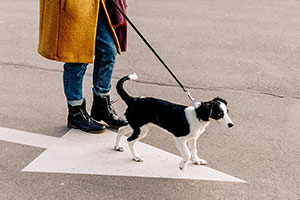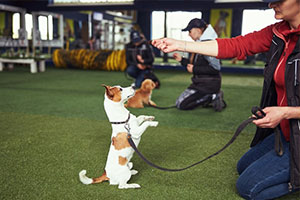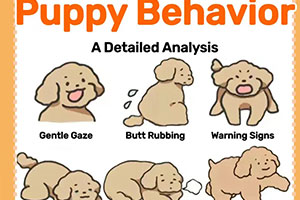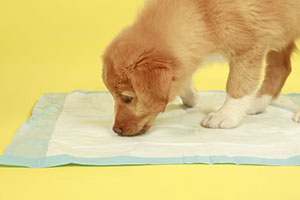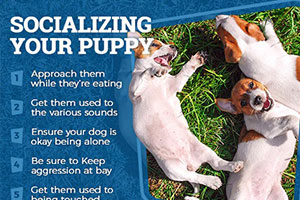Early Learning for Puppies
Dogs Training | by
Teaching the dog good habits is best achieved by rewarding success, although it is nonsense to suggest that scolding is never necessary. From the earliest age, puppies learn to understand the word, or the action implying, "No". Their mother teaches them some discipline from a very early age, and their new mother — you —needs to carry that on.
Take the common game of chewing your shoelaces. A tap on the nose while saying "No" firmly, soon teaches a puppy that there are some things in life to avoid, and that "No" means just what it says.
Similarly, most puppies start the dominance game very early in life. Nipping whomever they see as being one down from them on the totem pole quickly develops into a bite to establish their rank. Immediate remedial action - another firm "No" - will save a great deal of trauma later. In all training there is no substitute for persistence and patience.
COMING WHEN CALLED
Your puppy will normally have an instinct to come to you from the word go. Encourage this with treats. Call the puppy by his name and, when he responds, give him a treat. It takes a very short time indeed for the puppy to associate his name with a doggy treat. But if the puppy doesn't come immediately, do not get cross and scold him. It takes an even shorter time for the puppy to learn when to run away.
GETTING USED TO A LEAD
This really must be regarded as fun by the puppy. Step one is to put a collar on. This will feel very strange, and his immediate reaction will be to try to scratch it off. But delicious treats will distract him and overcome the itchiness of the collar.
Step two, but not until the collar is tolerated happily, is to attach a light lead. Don't hold the lead at this stage - let the puppy become accustomed to it by dragging it around. Finally, hold the lead, and gradually wind it in loosely, calling the puppy for still more treats.
TRAVEL SICKNESS
Overcoming travel sickness is, or should be, a matter of early learning.
Some puppies are never travel sick, but unlike some children, those that are can nearly always be taught to overcome the problem. You must act immediately when the problem arises, otherwise the puppy starts to associate cars with vomiting, and will salivate as a premonitory symptom as soon as you put him into the car. If travel sickness is allowed to persist, the puppy will learn to hate and fear car travel.
Simply taking the puppy on plenty of short journeys may be sufficient. If the puppy learns that he can go for a ride without being sick, especially if there is a walk or a game at the end of it, he may overcome his early nervous reaction.
If the short journey cure doesn't work, there is no substitute for travel sickness pills and a much longer trip. Bear in mind that travel sickness pills take some time to be absorbed and to work. They need to be given about an hour before the journey. To a considerable extent, the longer the journey, the more effective the treatment. Bear in mind also that most travel sickness treatments induce sleepiness, so giving the pills before going off for the family holidays can be doubly useful.
Most dogs will learn to overcome their travel sickness after a few training trips, but the longer the problem is allowed to persist before attempting a cure, the slower will be the response.
